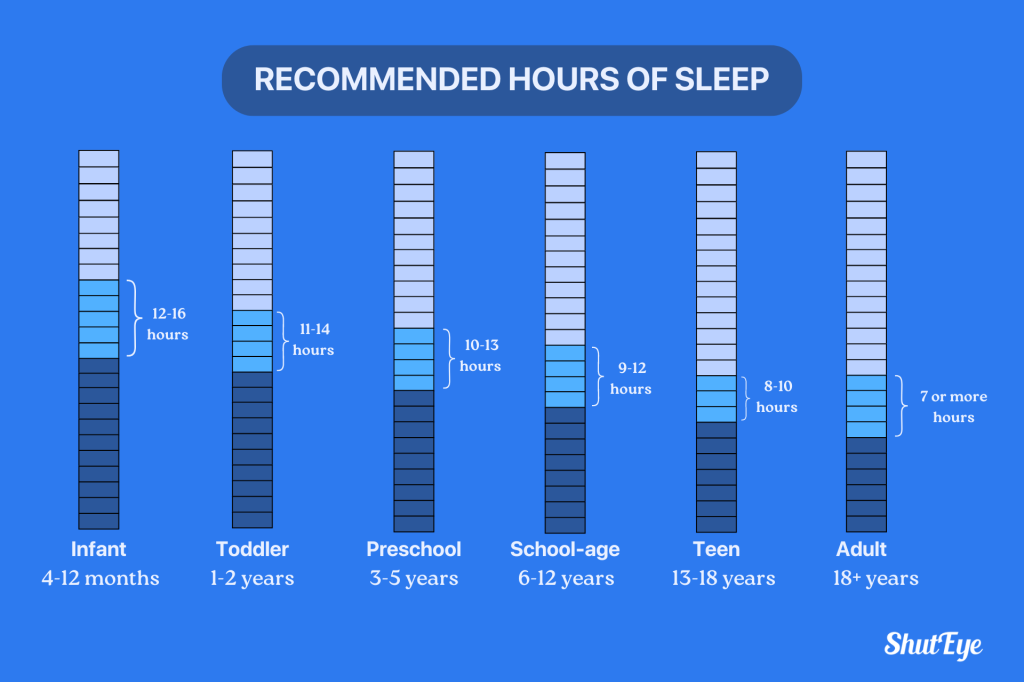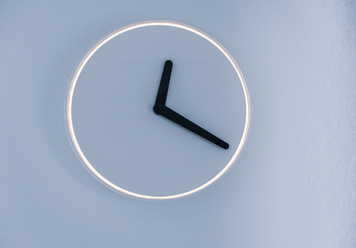Are you convinced that six hours of sleep is all you need to function at your best? Think again. In this article, we debunk the myth and uncover whether six hours of sleep is enough.
Is Six Hours Of Sleep Enough?
Regarding the recommended amount of sleep, most people need seven to nine hours per night to feel their best. However, some individuals, known as short-sleepers, can function well with fewer than six hours – sometimes as little as four hours of sleep a night. These short-sleepers are rare, and it’s important to note that they aren’t the norm.
Sleep deprivation can cause serious consequences on your health and well-being. It can affect your cognitive function and mood and increase the risk of various health conditions. So, while there may be exceptions to the recommended amount of sleep, it’s still crucial to prioritize getting sufficient sleep for optimal health and functioning.
Short-sleepers, although unique, shouldn’t be seen as a benchmark for how much sleep you need. Most individuals still require the recommended amount of sleep to perform at their best. It’s essential to listen to your body and give it the right amount of hours of sleep every night. If you consistently need less sleep and still feel well-rested, you may want to consult a healthcare professional to ensure there are no underlying health concerns.
Recommended Amount of Sleep by Age Group
Getting the right amount of sleep is essential for your health and well-being. The amount of sleep you need depends on your age. Here’s an infographic of how much sleep each age group should aim for:

To avoid the effects of sleep deprivation, it is crucial for adults to achieve the recommended sleep duration of seven to nine hours. Although you can get by on less sleep, lack of sleep may lead to fatigue, problems with thinking and concentration, and various health issues. Contrary to popular belief, getting six hours of sleep isn’t enough for most age groups. Prioritizing sleep is crucial for your overall health and well-being.
Get More Sleep With a Little Change in Your Sleep Habits
What causes insufficient sleep? Several factors can contribute to not getting enough sleep. One primary factor isn’t giving yourself enough time to sleep. Many adults in the United States report getting less than the recommended seven hours of sleep per night.
There are various reasons why people may not get enough sleep. Obligations such as work or school can take up a significant amount of time, leaving less time for sleep. Lifestyle choices, such as staying late or engaging in activities that disrupt sleep, can also contribute to insufficient sleep. Poor sleep hygiene, which includes not having a regular sleep schedule or a comfortable sleep environment, can also affect sleep quality.
In addition, certain behaviors and habits can impact sleep. Excessive substance use, like alcohol or drugs, can interfere with the sleep cycle. Lack of physical activity can make falling asleep and staying asleep harder. Spending too much time in front of screens, like phones or computers, can disrupt the body’s natural sleep-wake cycle. Consuming caffeine, incredibly close to bedtime, can make it difficult to fall asleep. Excessive napping throughout the day can also make sleeping harder at night.
Prioritizing Sleep Quality
Getting a good night’s sleep is crucial for our health and well-being. It’s not just about the number of hours we sleep but also the quality of our sleep that matters. Sleep quality refers to how deep and restorative our sleep is, including the different stages of non-REM and REM sleep stages.
For adults, it’s recommended to have at least seven hours of sleep each night. During this time, our bodies go through three to five sleep cycles, which are necessary to feel refreshed and energized. However, disrupted or abnormal sleep patterns can negatively impact sleep quality and lead to sleep deprivation.
Understanding the importance of sleep quality can help us take steps to improve it. One way to do this is by establishing a calming bedtime routine. This can include activities like reading a book, taking a warm bath, or practicing relaxation techniques. By creating a relaxing atmosphere before bed, we can signal to our bodies that it’s time to wind down and prepare for sleep. You can also download a sleep-tracking app, like ShutEye®, to improve your sleep quality.
In addition to a bedtime routine, creating a sleep-friendly environment can also contribute to better sleep quality. This means ensuring our sleep environment is comfortable, quiet, and dark. Investing in a supportive mattress and pillows, using blackout curtains or eye masks to block out light, and reducing noise disturbances can all help create a conducive sleep environment.
Sleep Basics: Quantity Vs. Quality
Sleep is essential for our overall well-being. To fully understand its importance, it’s important to differentiate between sleep quantity and sleep quality.
Quantity of Sleep
The number of hours you sleep per night is known as sleep quantity. For adults, it’s recommended to get at least seven hours of sleep each night. However, individual sleep needs may vary, and some people may function well with fewer hours of sleep. Finding the right balance for your body and prioritizing sleep is crucial.
Quality of Sleep
Sleep quality is just as important as sleep quantity. It focuses on the depth and restfulness of your sleep. Getting enough deep, restorative sleep is key. To improve sleep quality, it’s helpful to establish good sleep habits. This includes maintaining a consistent sleep schedule, creating a comfortable sleep environment, and practicing relaxation techniques. Monitoring your feelings during the day can also provide insights into your sleep quality.
Remember, it’s not only about the number of hours you sleep but also about the quality of your sleep. You’ll feel more rested and rejuvenated by prioritizing both quantity and quality.
What Happens When You Only Get 6 Hours of Sleep
Getting only 6 hours of sleep can seriously affect your health and daily life. When you don’t get enough sleep, you accumulate a sleep debt over time. This means that your body doesn’t get the rest it needs, which can affect the quality of your sleep. As a result, you may experience problems with your thinking, feel drowsy, and be more prone to fatigue.
If you aren’t getting enough sleep regularly, you’re increasing your risk of various health conditions. These include heart disease, stroke, high blood pressure, and diabetes. Moreover, insufficient sleep can have a negative impact on your mental health. It can contribute to problems like depression, anxiety, bipolar disorder, and even Alzheimer’s disease.
It’s important to remember that while some people can function well with less sleep, most adults need at least 7 hours of sleep to ensure their overall health and functioning. Prioritizing enough sleep is crucial for your well-being. So, make sure you give yourself the time you need to rest and recharge. Your body and mind will thank you for it.

How To Get Better Sleep Every Night
Establishing a consistent sleep schedule is key. Go to bed and wake up simultaneously every day, even on weekends. This helps regulate your body’s internal clock and promotes better sleep.
To avoid sleep disruptions, limit your exposure to electronic devices before bedtime. The blue light emitted by screens can interfere with your sleep. Try to avoid using electronic devices for at least an hour before going to bed.
Watch what you consume before sleep. Avoid caffeine and heavy meals close to bedtime. Stimulants like caffeine can interfere with sleep, so avoiding them in the evening is best. Additionally, eating heavy meals too close to bedtime can cause discomfort and make it harder to fall asleep.
Regular exercise can promote better sleep. Aim for at least 30 minutes of moderate exercise most days of the week. However, avoid intense exercise close to bedtime, as it can energize your body and make it harder to relax.
Managing stress is crucial for sleep. High levels of stress can negatively impact your sleep. Find healthy ways to manage stress, such as practicing relaxation techniques, engaging in hobbies, or seeking support from loved ones or a therapist.
Conclusion
In conclusion, six hours of sleep isn’t enough for optimal functioning. Sleep plays a vital role in our overall health and well-being; inadequate sleep can have serious consequences.
While there may be exceptions, most individuals require more than six hours of sleep to function at their best. It’s important to prioritize both the quantity and quality of our sleep in order to maintain our physical and mental health.













